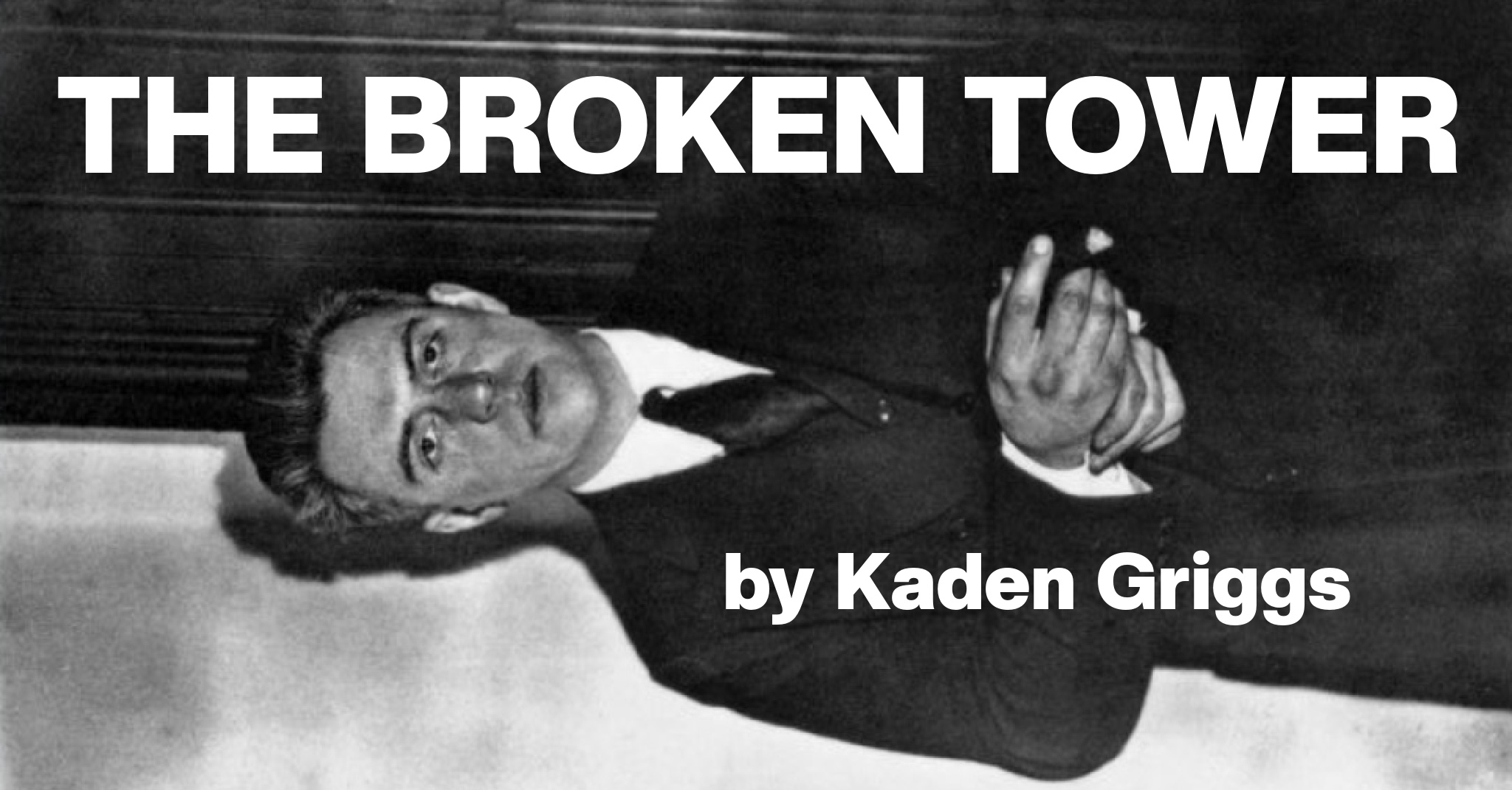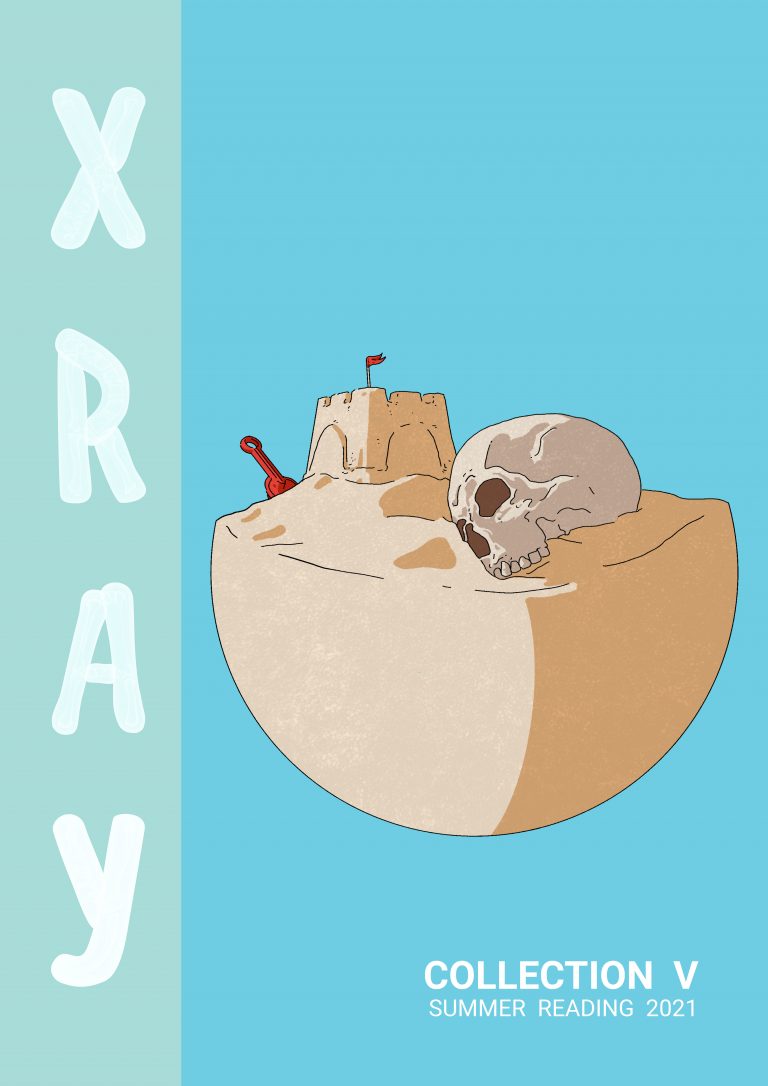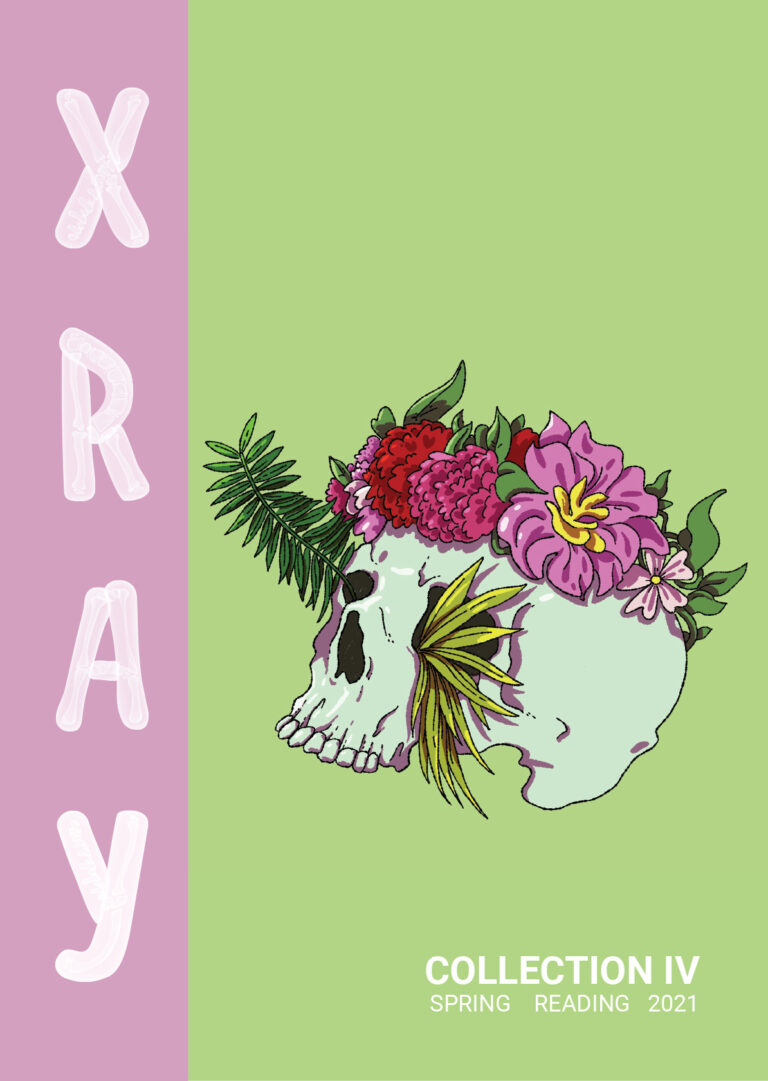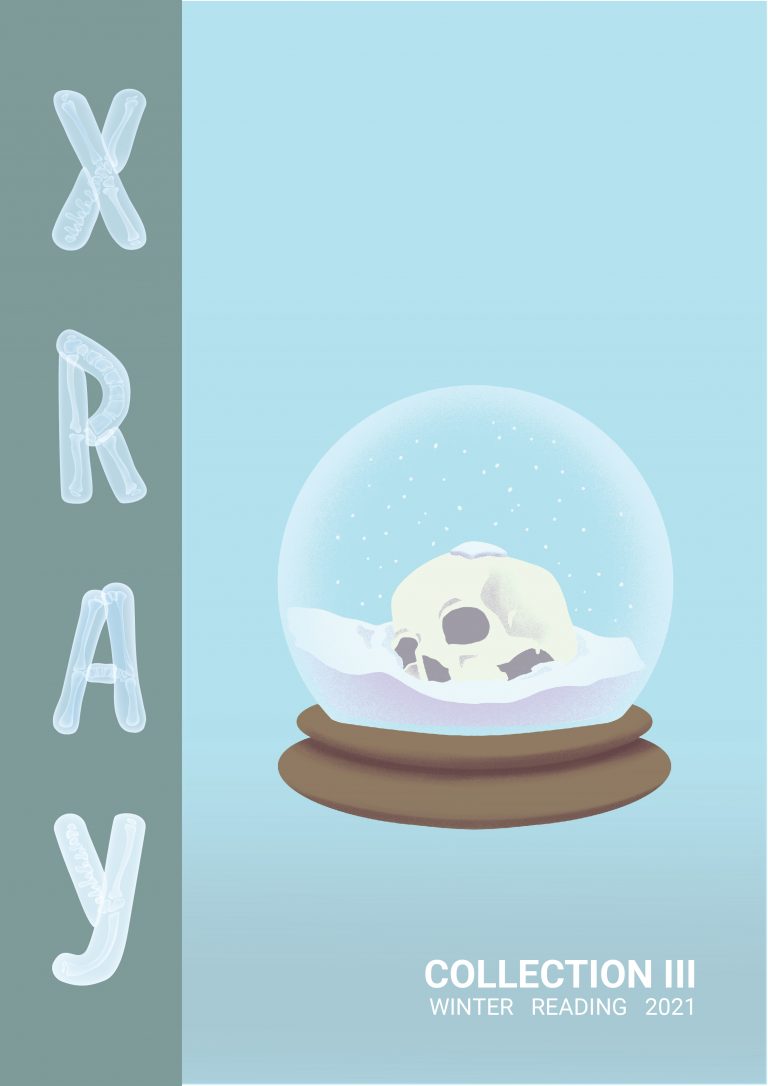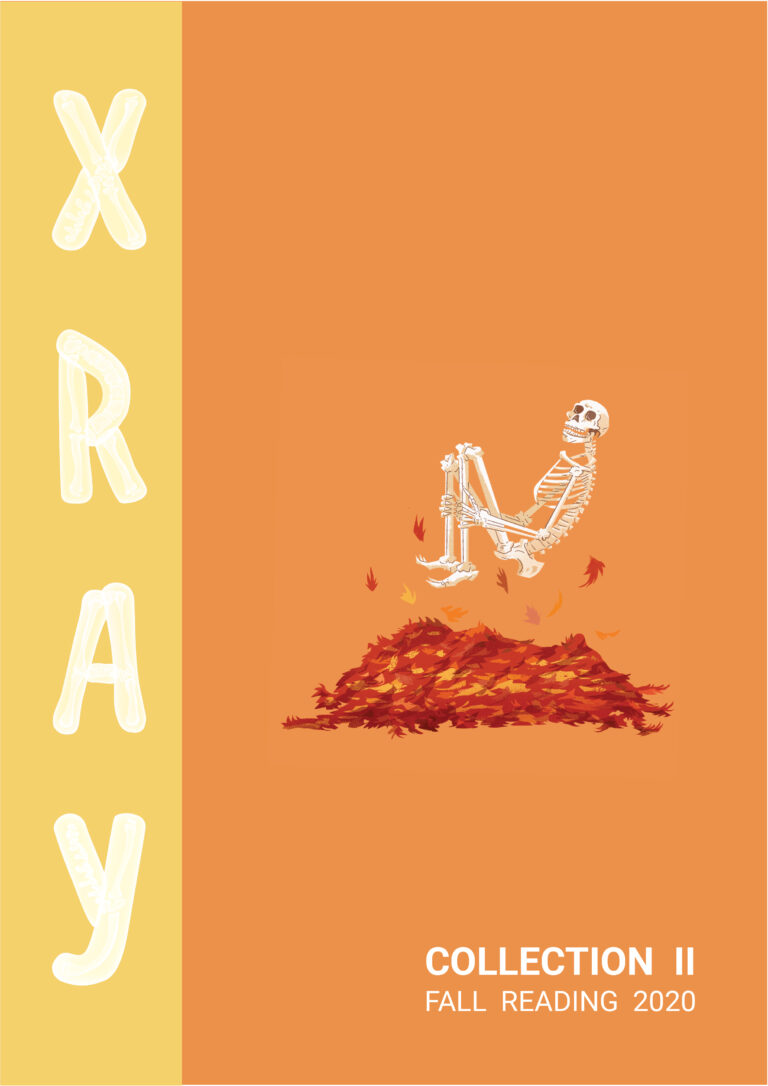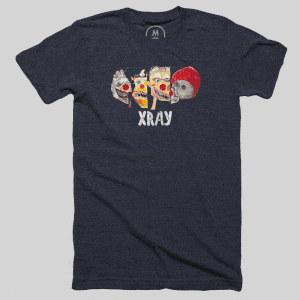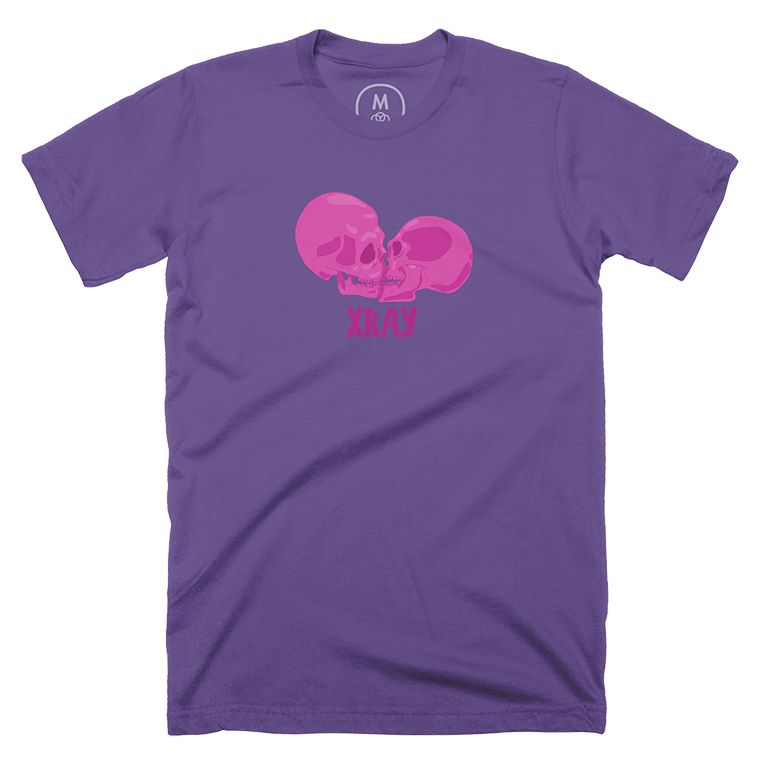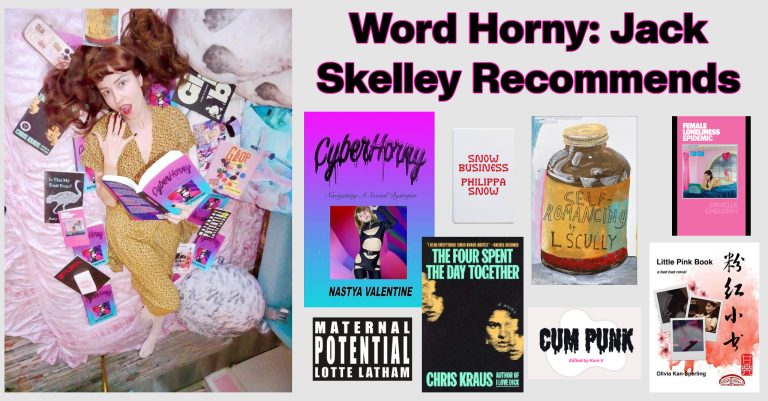
Interviews & Reviews
WORD HORNY: JACK SKELLEY RECOMMENDS
writer Nastya Valentine with books reviewed by Jack Skelley Nastya Valentine – Cyberhorny: Navigating a Sexual Dystopia, and The Cyberhorny Dream Diaries: In Defense of e-Subjectivity (cyber-horny.com)Earlier this year, a writer friend said to me, “You and Nastya should talk. Her new book is kind-of Myth Lab-adjacent.” This was in reference to my novel (subtitled Theories of Plastic Love, Far West press). Sure enough, both Cyberhorny and its Jungian appendix The Cyberhorny Dream Diaries orbit with my art obsessions in “the clitoverse” – the eroto-celestial plane where forces of pleasure defeat the denial of desire and warping of libido amid or despite algorithmically administered market controls. Cyberhorny and Myth Lab (which also share a purple/pink palette) overlap with influences high and low, esoteric and sticky, Lacanian and Lynchian. On one level, Cyberhorny is an online sex primer. You’ll learn a shit-ton about Only Fans. But watch it extrapolate through space and time. Scoff if you must, but Cyberhorny compares to the encyclopedic scope of Moby Dick or Urn Burial by Sir Thomas Browne – that free-range, 17th century compendium of paradoxical thought. Valentine exceeds limits of logic to glory in eromantic flights of consciousness. Erin Robinson, XXX Machina Not a book but an ongoing art/research project by Erin Robinson . XXX Machina disentangles then reknots the naughty algorithmic dimensions of porn and digital bodies. It matches up with fave theorists in this zone (Bataille, Baudrillard, Lacan, Deleuze) plus of course the seminal cyborg feminism of Donna Haraway (also Myth Lab-adjacent). Robinson and XXX Machina have upcoming exhibitions in Denmark and Northern Ireland. Philippa Snow, Snow Business (Isolarii, 2025), and It’s Terrible the Thing I Have to do to Be Me (Virago, 2025)Philippa Snow is our top, post-everything, pop-culture appraiser with super-empath powers, lovely hair and two new books. I discovered Snow’s writing in an essay about my dear friend Bob Flanagan. Although Bob, who died in 1996, is legendary for his severe SM performances, Snow discerned in Bob the hilarious poet I knew. Bam! I was hooked on Snow’s insights into icons. (The Flanagan piece appears in her 2022 collection, Which As You Know Means Violence.)This year the author released two volumes from UK presses: Snow Business and It's Terrible The Things I Have To Do To Be Me: On Femininity and Fame (I plan to nick her idea of long-ass titles for my next novel!). Snow’s empathy animates something we all experience but few articulate: We’re stuck in a love/hate relationship with mass media. In Snow Business, her bemusement meter even evolves into mini-fictions, inhabiting the psyches of stars in all their tawdry grandeur. This summer I interviewed Snow for Interview magazine: She in London, me in L.A. Lotte Latham, Maternal Potential (Carrion Press, 2025)Latham, like Snow, is based in London. Linguistically gifted, Latham caught attention with her 2023 memoir (Dear Mr. Andrews, Guts Publishing Ltd.) It charted the ins-and-outs of sugar dating across the hotels of Europe: the joys and the sads. In Maternal Potential, narrative gives way to wordplay bursts that verge on verse with this theme: losing a pregnancy… and the resulting disharmonious hormonal emotions. Plus, it links astute class awareness with dirty talk: “He counts to ten, spanking me for all the rent I didn’t pay. Then fucks my face quite roughly and I vomit red wine up. I took a photo of the red sick on the sheets – a menstrual stain.” The touching/funny tone makes you fall in love with Latham’s voice. Maternal Potential delivers mourning (sickness), wisdom and tart humor. It ponders motherhood in a world where love is commodified yet persists. Chris Kraus, The Four Spent the Day Together (Scribner, 2025)Speaking of loving dick, Chris Kraus has a new one. The Four Spent the Day Together takes a stab at true-crime. The murder doesn’t come until the book’s final third, but it shoots new juice into Kraus’ customary veiled memoir. Catt (a stand-in for Chris) consumes evidence surrounding a teen meth death in rural Minnesota where she has a home. The details are chilling. They would also be inexplicable except for Kraus’ deft – almost invisible – picture of the economic realities at play: These teens have no financial future. The wheels of capitalism also grind silently through the book’s other two sections: reflections on young Catt’s Connecticut roots and radicalization; and on the period when Kraus was a victim of canceling. Supporting the book, Bel Ami gallery in Los Angeles created “Civil Commitment.” This is a vast collage of investigative material compiled by Kraus. I’ve seen it. It’s like one of those conspiracy theory memes, with interlocking photos and documents. Author/artist Juliana Halpert compellingly cross-references the Kraus research with photographs of Halpert’s mother’s work as a public defender. It’s another lens for uncomfortable conflicts rendered in the book. Danielle Chelosky, Female Loneliness Epidemic (Far West, 2025)Speaking of Chris Kraus, Danielle Chelosky entered my world with a request to forward her early chapbook to Kraus… who enjoyed it. Me too. Since then, Chelosky’s books have buffed-up into (Mary) Gaitskillian or (Lynn) Tillmanian tales of wayward fucking/romance. She even titled her recent series of NYC readings Weird Fucks, after Tillman’s early collection (which I devoured at the time I was writing Fear of Kathy Acker). The charm of Female Loneliness Epidemic is not in the stories per se, but the details and tone of angsty pleasure and compulsion. One line I circled: “He thought it was silly I liked to keep my underwear on during sex, pushed to the side. I didn’t want him to think it was silly. I wanted it to be sexy.” This tracks with a bolded, pleasure-dom line that climaxes the first paragraph of Fear of Kathy Acker: “Just leave your underwear on!” While Chelosky hits rich veins, she cultivates a personal iconography of White Claws, schoolgirl skirts and fishnets. L Scully, Self-Romancing (Dopamine Books, 2025)Step 1: Read Self-Romancing. Step 2: follow L Scully’s Insta for their near-daily sonnets. Step 3: Get inspired to make your own. Writing can be a self-cringing, existential quest: “Is this any good? Will anyone read it? I can’t go on. I’ll go on.” But L is fearless, banging out declamatory affirmations drenched in emotion and quotidian mini-dramas: “The love I fell in yesterday will carry me through a lonely evening.” Or “You didn’t say the sex addiction thing was either hot or even a red flag and that made me feel like a person.” To clarify: Self-Romancing is not sonnets, but page-length paragraphs. Still, many of the lines would transplant well to sonnets. Maybe I’ll steal the ones I quoted. Jerome Sala, Glop (BlazeVOX, 2025)It still mystifies me: Poetry, whose job is to train the weapons of language upon itself, often neglects pop culture. I mean, this is the air we breathe: movies, music, memes, news, sex, celebs, algorithms. And all of these – let’s face it: even our own personalities – are tools of advertising. That’s why the gods of commerce created the droll Jerome Sala: America’s premier pop poet. It took this Madison Avenue copywriter (now retired) to rebrand verse via the love/hate bonds of commodification. To see profundity in stupidity:
Which is why I stand before you nowproof of boththe glories of capitalismand the truthof dialectical materialismGet Glop today! Amy Gerstler, Is This My Final Form? (Penguin Poets, 2025)Amy Gerstler is America’s greatest living lyric poet. There, I said it. A perfect example is this book’s “Night Herons,” which appeared also in The New Yorker and represents Gerstler’s specialty: the dramatic (comic) monolog. So, no surprise this volume also veers into dramatic works. (“Siren Island.”) I’ve seen her miraculous/weird plays rendered on stage. They’re a corollary pleasure on the page. Rosie Stockton, Fuel (Nightboat, 2025)There are (they say) two parts of a metaphor: The “tenor” (meaning) and the “vehicle” (the image that carries it). The verse of Fuel drives the vehicle of desire – literal and symbolic, internal and societal. In a Lit Hub essay Stockton compresses the book’s rich power poetics: “According to Lacan’s update to Freudian psychoanalysis, all drives operate at the speed of the death drive. The death drive is a mistaken longing for pre-Oedipal harmony that fuels the coherence of our symbolic order, mediating between life and death. But as every Orphic driver knows, this has more to do with our quest to cohere meaning in our symbolic worlds than biological instincts. For better or for worse, the drive is a series of detours that lets us speed toward and circle around the enjoyments of life that we, in a world that is literally running out of gas, don’t have the energy for. Not literally death, but the deadness we intercept driving close to the guardrails. The drive circuits around what keeps us alive, beyond mere self-preservation. The proof is in the poetry: the death drive, actually, is on the side of life.” Olivia Kan-Sperling, Little Pink Book: A Bad Bad Novel (Archway Editions, 2025)What is it? A meditation on a color. A bilingual fable. A confection of cuteness. A yummy gummy romance. A takedown of Asian girl-pop machinations. Little Pink Book is also something impossible: an exaltation of the power of “sentimental” melodies/lyrics. (Have you ever had a sappy song trigger a deep cry?) Pretty word-worlds cuddle you weirdly: “Having been injected into this bubble-gum bubble, Limei felt cold, slow, sticky. This usually sweet and nice shade – the color of girls and fun – felt, suddenly, claustrophobic. Pink was also the color of insides, and this was too much, too much inside.” Amid the mash of forms is narrative, complete with horny/porny parts. Is it all in little Limei’s mind? Kan-Sperling is a virtuosa of multiple styles. Cum PunkA gorgeously gooey online anthology, Cum Punk proclaims: “Cum is in-your-face life energy. We are here to blow loads and do big juicy squirts in the faces of sex neurosis, prudish pretension, and desire-dementing repression. Gone are the days of self-leaving, disembodied cums. Now is the time of fully embodied, self-arriving cums! We bust through fear and shame as hard as we bust our finest, most violent nuts.” Ashley D. Escobar, GLIB (Changes Press)The NY School of Poetry is in good hands... and mouths. Validating generational elasticity, Escobar’s Glib references Frank O'Hara, but instead of “i do this, i do that” it’s “i fuck this, i snort that.” Laffs and schemes and senses and dreams, and sexuationships, thick with references... totally IN THE MOMENT. Poetry is not ABOUT something; it IS that thing. “Thingness,” as Eileen Myles posits in the intro. Plus, any book that rags on Sally Rooney & includes lines like, “your dick is my favorite toy” gets extra points.
November 4, 2025
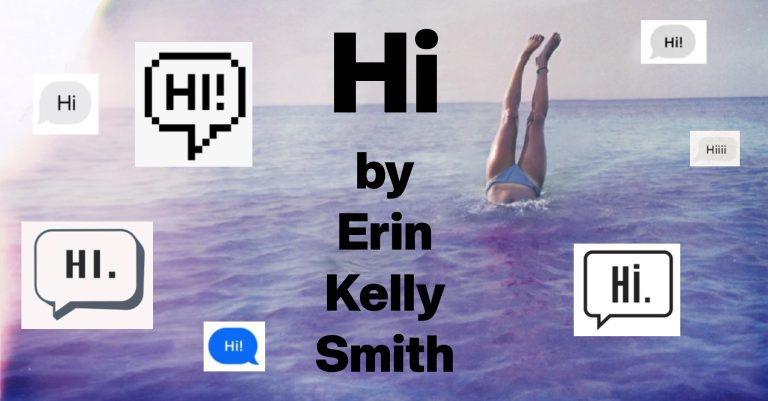
Fiction
HI by Erin Kelly Smith
She filled out her first dating profile in a frenzied whirl, half-drunk on the yet-undigested news that her ex had brought someone with him to Thanksgiving that year.For a photo, she uploaded the professional headshot that was on the “Meet Our Team!” page of her work’s website, then quickly removed it, fearing these unknown, savage internet men could reverse-image search their way to learning every private facet of her life. She snapped a brand-new—and thus unsearchable—photo of herself standing and staring into her hallway mirror. She intended a smile, but only captured once its bloom had faded, her expression already wilting into its usual wrinkle of woe.That first night, one man messaged her. She felt dangerous and desirable when she saw the alluring dot of the notification, red like a woman’s sex. The man’s name was Alan and all of the photos on his profile were selfies taken in his car.hi, he messaged.She stared at the little text bubble, and it was invigorating but then immediately she felt unsafe—who was this guy, this stranger? Why had she purposefully exposed herself to an unvetted man who would inevitably just bring her hurt? Then that initial, sharp instinct towards self-preservation withered and underneath it she just felt foolish.She closed the app, then reopened it and in one decisive press of her finger, deleted her profile. She closed the app again and uninstalled it from her phone. Who was she kidding? Who would want to date her? Before her marriage had ended, back in their courtship’s tender beginning, she had only become her husband’s pre-ex wife by dint of them both having been young and stupid. There was no way anyone else would ever want her, not now. There was no possibility that Alan could actually like her. He probably just messaged every profile he stumbled across. He probably was a bot.She went to work the next day and wore a high-collared, conservative blouse, like the one in her picture on the website, that hid any suggestion her body could be engaged in something as unprofessional as romance. She thought of emails and meetings and spreadsheets—but then, in the car on her commute home, suddenly she thought of Alan and his selfies. Where had he been driving to? His photos had been taken on different days, evidenced by his different outfits, but his expression was always the same. It was a stern, perceptive look; a look like he was really seeing her, even through the screen of her phone. His was a gaze that traversed time, traveling via the power vested upon it by the holy quintology of 5G mobile data, staring up and out of the phone screen and then deep within her. His was a look that trespassed upon the secret caverns of her mind, witnessing the heavy list of every bad thing she wished she could’ve undone. His seeing was her immaculate confession, and when his gaze at last averted from her hidden shames, she would finally be granted the freedom to forget them.That night she dreamt of Alan. They were in his car. He turned his face towards hers. They locked eyes. “Hi,” he said.She found herself thinking of Alan every time she drove her car. “Hi,” she started saying when she turned the ignition, when she buckled her seatbelt, when she stopped at a red light. “Hi.” It was like their secret code word, hers and Alan’s, the verbal key to unlock their world.Soon, her dreams of Alan became more complex. They’d drive around a dream city, for hours. She’d beg Alan to speak to her, but now he was always silent and distant. She’d plead with him to only just say their private word, to just say, “Hi.” He would instead stop the car, mutely turn towards her beside him, and stare. The stare was awful; it swallowed her in its thick blackness. And then, after a while, he would turn away and resume driving the city’s streets, and yet she would still feel trapped in his darkness.In the dreams, in the unspoken contextual fabric that swaddled them, it became fact that she and Alan lived in this car, and maybe always had. They were married, in the dreams. She would scream and curse at him to tell her where they were going, what unreachable place was their final destination, but of course he didn’t speak; in the dreams it had been years since she had heard his voice, since he had whispered what had become her pet name, her sobriquet: Hi, hi, hi. Hi had been prayer and dirty talk all in one syllable and now he had taken it away. He wouldn’t even look at her anymore, kept his unblinking eyes trained on the endless road ahead. She started weeping, in the dreams, a heavy, sticky kind of weeping that invaded her whole being like sickness.Even when awake, she now couldn’t speak their private word without sobbing, even just in greeting to her colleagues. Soon just the sight of her own car brought her to tears, and soon enough, everything else did, too: the couch in her living room where she and Alan would never lounge together on lazy weekends; the trashcan in her kitchen that he would never chivalrously empty before even being asked; the spot on her desk at work where his picture would never sit, declaring their love to the world.Her coworker caught her weeping in the bathroom, and she didn’t have words to express what she was going through.“Alan,” was all she could croak through the stall door, before being overcome by another sob.“Ah, breakup,” the coworker said knowingly, and silently exited the room.Then, abruptly, the Alan dreams stopped. She still dreamt at night, but she’d returned to her usual carousel of familiar stress dreams: the one where she was back in high school; the room full of spiders; being pulled by a wave out into the ocean with no way back to shore. In the mornings after these dreams, she somehow felt more tired than she had the night before. Throughout her days she now yawned as much as she had been sobbing. Her eyes were perpetually puffy and bloodshot but it was indiscernible whether it was from these restless nights or just the cold blanket of lingering despair.And then, early one morning, she woke herself up. The well-trodden high school dream had whirred into place: she was a student but she was her same adult age. Confused, she walked up and down the school’s labyrinthian halls. In this recurrent nightmare, she never knew her class schedule and she could never find the administrative office—the correct corridor was always locked, or she made the wrong turn and ended up back where she had begun—and she was overwhelmed by the pervasive suspicion that she wasn’t even supposed to be there. As always when she had the high school dream, a feeling of stress and frustration and powerlessness swelled within her. But then—in an unprecedented act of REM-cycle defiance, she simply thought, “No.” The dream ended. Her eyes opened. Somehow, her desperation had instinctively manifested the ability to dream lucidly.She started waking herself immediately if the wrong kind of dream began. She’d wake up five, six times a night. Just before rousing herself, she’d first whisper, “Hi,” as a last-ditch attempt to ferret out if Alan existed in that same dream universe.She woke herself from spiders and water and reenacted memories of her marriage failing, until finally, finally, she had a dream in which she was back in the city, their city, her and Alan’s city. Nervous, hopeful, and scared to feel something as perishable as hope, she whispered, “Hi,” out into the empty city streets. It rang true. She could feel the whole block vibrating—she had uttered the key and the lock was somewhere in this dream landscape. Alan was somewhere, here in this dream. She had to find him.She ceased waking herself from her other dreams. Instead, she discovered that with an invocation of her nascent powers of lucidity, she could simply leave her initial dream surroundings and go from there to the city. All she had to do was exit the high school, walk out of the arachnids’ nest, swim back from the shore. Once she arrived in their precious metropolis, she roamed its streets, calling, “Hi.” Her trembling voice’s echo reverberating back was her beacon, her compass, telling her where to turn next. “Hi, hi, hi, hi.” Soon she did not even have to say it, would just hold the unspoken word in her mind and it would guide her, through the dream streets, through offices and gardens and shopping malls. She started going to sleep as soon as she got home each evening, in order to grant herself the maximum time in which to explore the city. She started sleeping on her breaks at work, curled up under her desk or on the back seat of her car. And then she started sleeping in, and not even going to work at all.She wandered the dream city for dream years, saw dream seasons change, saw dream buildings crumble, saw dream snow and dream sleet and dream storm. She devoutly followed the beacon wherever it led her. It warmed her with its soft internal glow until at last it burned bright and clear and she knew he was close, she could feel him.And then she saw it: his car, driving towards her, out of the mouth of a tunnel several blocks away.The beacon burned brighter and brighter inside her, searing and hot. She ran towards the car, a run so fast it approached flight, only halting at the behest of a Do Not Walk sign’s demandingly authoritative red hand. She was so close. His car was stopped at the light on the other side of the intersection. Desperately she stared through the car’s windshield, but he didn’t notice her. She waved her hands and she flapped her arms and she jumped and she danced and then—and then he looked over. But—his face. The beacon inside her wavered and dimmed, and suddenly she was unsure if it had ever even been guiding her, if it had ever even warmed her with its light, if she was not just empty inside, suffused with her usual unrelenting darkness. His face—it was unfamiliar and uninviting, a cold, unexplored landscape. All at once she realized she could not remember if this is what he had looked like. If this man in this car in this dream city was even the Alan for whom she had been so desperately searching.The light changed. The car drove through the intersection and then past her. She tried to call out their secret word, their signal, but she could say nothing at all, and then he was gone.She woke without making herself. She rooted around her twisted bedsheets until she found her phone. She swiped past all of the email notifications and the texts and the missed calls. She reinstalled the dating app. She seamlessly clicked “forgot password,” opened her email and artfully ignored every message but the password reset link. She typed alanalanalan into the box, and then, after that was rejected for not being secure, alanALAN@1@n!She had to create a new profile and this time she used her professional work photo. She was unperturbed, had no reservations about him reverse image-searching the details of her life—for Alan would soon be in that life: sweetly serenading her at happy hour karaoke; softly kissing her beneath mistletoe at the office Christmas party; candidly beaming at her beside him in a framed picture that so captured their immaculate happiness co-workers would involuntarily stop beside her desk to smile back at this photograph. “That’s the look of love,” they’d say.For her bio, the only written section of the dating app profile which she could not leave blank, she just typed, “hi hi hi.” She clicked accept and then here she was, back in the portal connecting her to Alan’s gaze. She hungrily clicked on the button that said All Messages.The inbox was empty.She incredulously stared at the blank space on the screen that had once held hi, that had once held the world. After a while, the phone’s screen went black due to inactivity, and soon after that, her eyes closed, her vision went dark and she fell back into slumber. It was the ocean dream. From the shallows she could see the dream city blinking at her far in the distance—its skyscrapers and its overpasses, its churches and its penitentiaries—but she turned away from it, and she lay back on the surf with her arms outstretched, and she let herself drift out to sea.
November 3, 2025
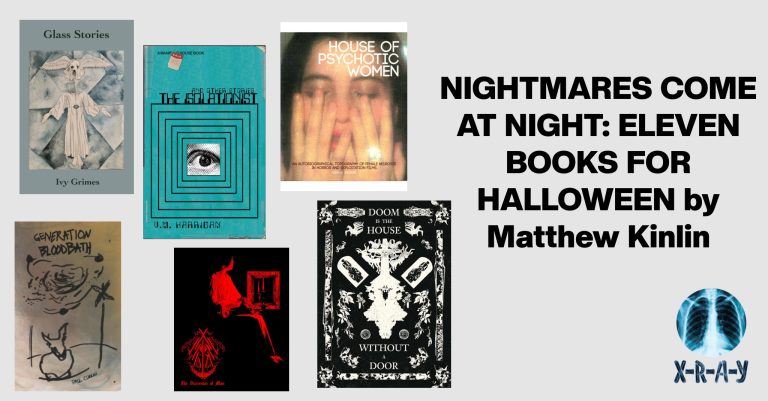
Fiction
NIGHTMARES COME AT NIGHT: ELEVEN BOOKS FOR HALLOWEEN by Matthew Kinlin
Nightmares come at night. The poster for Halloween III: Season of the Witch shows the silhouettes of three children walking in Halloween costumes against a red night. A ghoulish apparition evaporates above them into electric blue. The tagline at the bottom of the poster reads: “The night no one comes home.” Here are some recommended books that approach horror and other areas of eeriness in new and unexpected ways. Eleven lost souls drifting into darkness. The night goes on forever. Kier-La Janisse, House of Psychotic Women: An Autobiographical Topography of Female Neurosis in Horror and Exploitation Films (Fab Press, 2012) Kier-La Janisse’s seminal House of Psychotic Women rewrites the rules of the game with an autobiographical take on the neurotic women that populate horror and exploitation films. Opening with a shocking account from childhood of witnessing her mother being raped, she weaves this into a discussion of The Entity. In this 1982 film, Barbara Hershey plays a single mother who is raped by a poltergeist but no one, including her own therapist, believes her. With great skill, Janisse raises important questions about self-blame and guilt. She goes on to explore how films, often disregarded for their portrayal of women, actually deal with the complex experiences of women in a variety of ways: difficult sibling relationships and the doppelgängers of Robert Altman’s 3 Women, shifting attitudes to female alcoholism and trauma in Let’s Scare Jessica to Death. Janisse argues that rape revenge films could be seen as a pushback against male-driven architecture and the reclaiming of public space. A section of the book is dedicated to the “pallid and sickly looking” Mimsy Farmer, who perfectly encapsulates the typical neurotic and bears a striking physical resemblance to Janisse’s own mother. There are no easy answers to trauma, as the end of The Entity indicates. House of Psychotic Women is a powerful and extremely moving work that offers an important lens to an expansive understanding of horror and female experience. Kevin Killian, Argento Series (Pilot Press, 2023) Kevin Killian’s poetry collection Argento Series offers a haunting take on the work of the Italian maestro Dario Argento, with poems named after his many films, such as INFERNO and PHENOMENA, whilst others reference actors and central themes. Killian cleverly, and with wry humour, repositions the visual horror of Argento, with its lush scenes of crimson butchered bodies, to the AIDS crisis. He describes, “nasty patches on my epidermis like four flies / on gray velvet.” Bodies of friends and lovers break apart, “wasted and angry in death.” A killer somewhere in the apartment. The approach of unspeakable terror. In HOUSE OF WAX, Killian writes, “Give me back her floating eyes / I’ll put them in my shadow box / and build a new face around them / smiling and screaming / mouth open.” In Argento Series, the masked killer is AIDS. It runs rampant through its pages, “white, with veiny streaks of red.” Decadent bodies come apart like fabric; “a corsage of pink crinkles rather like the asshole of Tommy.” A beautiful boy led on a bed enacts a macabre ritual of desire. Killian concludes, “Death looks more like a person than he used to.” It’s in the blood now. As Derek McCormack summarises in his excellent introduction, “Kevin got what he wanted from Argento: an ambience of brutal bloodiness… he gave Argento’s oeuvre AIDS.” Naomi Falk, The Surrender of Man (Inside the Castle, 2025) Liberated from the sterile confines of academic discussion, Naomi Falk approaches 18 artworks with refreshing openness, vulnerability and questioning spirit. The stunning typeface and formatting, from the superlative Inside the Castle, matches the gothic tone of Falk’s prose. In her prologue, she muses on the limits of writing. Words are not enough. With shades of Clarice Lispector, she articulates the immediacy of her own experience as, “It leaves my body with scorching fury, white hot. I am screaming.” In her metaphysical treatise on language and self, she poignantly asks, “There are no oceans to cross, so where do I come ashore?” An uncertain captain, Falk finds 18 shorelines to head towards: the mute and quiet loneliness of an Alfred Kubin drawing, the uncanny valley of a Louise Bourgeious sculpture, Bruce Nauman as reminiscent of Saw II, her great love and admiration of abstract master Helen Frankenthaler whose painting Trojan Gates resembles, “an eruption bled into the world.” Falk smartly identifies her own role in the art she sails towards. An ocean beneath reveals her own fluctuating reflection. She writes, “I am experimenting with degrees of perceiving myself.” In stunning moments of poetic description (“Death was an unwashed sheet”), Falk heads into the unknown. She elaborates on her own alterity, “The words have unravelled me, everything I loved. I am that which I fear, destroyer of all I touch.” Each person creates and destroys all meaning. A reflection in the water: angel and demon. Ansgar Allen, Midden Hill (Schism2 Press, 2025) “Our assignment was this. To record what the islanders did and what they said.” Ansgar Allen’s Midden Hill offers the mind-bending dictation of a patient to his doctor about his time spent on an island with a midden, an incredible refuse hill, in the centre. Reminiscent of J.G. Ballard’s Concrete Island, Allen offers a confounding examination of civilisation and its discontents. The midden on the island is described as the dumping ground for the entire planet, made up of “everything every culture has expelled from itself.” An abject zone that “contains all defilements, all forbidden objects, all expulsions.” The book opens with a quote from Mary Douglas, an anthropologist who writes about purity and uncleanliness, and the rituals of purification central to modern cultures. There is a system to man’s filth. His safety is predicated on his daily attempts to expel waste and form himself in opposition to this. The island seems to place all of that in jeopardy. It carries perverse rituals of its own, mirrored in the vortical writing of Allen, as his visitors navigate this land of symbolic chaos: the burning and inhalation of a mysterious weed, the appalling significance of a peeled egg. In a way, the book captures something of Kafka’s The Castle; an outsider caught in an alien system, tunnels and tunnels of endless rot. David Kuhnlein, Ezra’s Head (Tragickal, 2025) David Kuhnlein is the master of surprise. Every sentence of his work is without compass, each paragraph leads to unexpected realms. In this collection, he offers nine short stories, one longer story, and then his novella, Ezra’s Head. Throughout the short stories, Kuhnlein draws arresting and haunting images, such as, “We called each other murderer, swirled one another’s faces like red paint.” He constantly provides head-spinning descriptions of experience; “Life felt like leaning out the window of a dream.” His imagery helps illuminate his character’s complex relationships with the physical body. This finds its apex in the novella that concludes the book. Ezra’s Head is the story of Redd, who “to kill himself, he gulped a cornucopia of barbiturates, chased by every ocean.” During this failed suicide attempt, deep within a coma, Redd enters an unknown zone overseen by severed heads, where “his lips were soldered shut by a chemical solution. He looked down at the ox bones dangling from his neck.” Death seems even more terrifying than the misery of living. Coming out of his coma, Redd attempts to exist for the following year; liminal and between worlds. “Are orbs souls?” a Hare Krishna follower asks, at one point. Metaphysically queasy, still adrift; “Redd’s skin felt screwed on.” The novella builds and builds to its violent conclusion. Nightmarish, Kuhnlein’s severed heads float forever in judgement. They look and ask, “Try to describe the nothingness that you imagined would exist for you beyond the veil. We’ll wait.” Can the dead ever die? Thomas Kendall, The Autodidacts (Whiskey Tit, 2022) As with How I Killed the Universal Man, Thomas Kendall has an incredible ability to take noir and other genre tropes into new and unexpected places. We begin The Autodidacts with the spooky disappearance of a man living in a lighthouse and the finding of his notebook. The obvious path would be a standard detective or mystery story but instead, Kendall provides a complex web of intergenerational stories of loss covered in “dust and detritus clashing everywhere.” Kendall’s prose weaves a Proustian dance. Slowly, it feels like a memory we can almost recall, “something that he—Lawrence—can’t recall the purpose of recalling.” The push-pull of grief, the swelling isolation, is all mirrored by the ocean. When, “Emily exhales. Really it is the tide of herself going out.” A deep sadness and sense of disconnect orbits around the lighthouse of every character, each flickering beneath pale fogs. As Mark Fisher writes in Ghosts of My Life: Writings on Depression, Hauntology and Lost Futures, where he makes links between depression and neoliberalism; “The past cannot be forgotten, the present cannot be remembered.” Characters, like life, look for answers and closure in a world that often denies this. In beautiful and tender prose, Kendall captures small moments of searching between his lost souls that realise, “other people are mirages.” We invent our own lives and ultimately, the deaths of each other. Paul Curran, Generation Bloodbath (Apocalypse Party, 2022) A massacred desert pit of viper blood and kerosene. Paul Curran offers more nightmare fuel in Generation Bloodbath; the horrific account of a recent regime change and revolutionary movement known only as Generation Bloodbath. Reminiscent of Pierre Guyotat’s Eden, Eden, Eden and Kathy Acker’s accelerated science-fiction Empire of the Senseless, Curran describes a territory where, “Chunks of uncooperative corpse-waste flooded the desert surrounding the interrogation camp.” Presenting as a numbered list, akin to a revolutionary manifesto, but one that ultimately negates itself: “The resistance manifesto’s last page calls for an end to manifestos.” An atrocity exhibition where, “amputating the hands of infants symbolised new-regime superiority.” The book feels relevant to the regimes of extermination we have seen currently. New administrations of rats and corpses. With exquisite prose and sickening imagery, Curran paints an apocalyptic tapestry of bodies evaporating into black ash. Missiles laser-guided through green night. Blood and blood and blood. Total non-existence. As Curran writes, “Generation Bloodbath is the end of time.” V.M. Harrigan, The Isolationist and Other Stories (Manifold House, 2025) Harrigan begins his impressive collection of short stories with the startling and shocking “Demon, 1966”, which opens with the incredible lines, “I just want to wake up. So I do.” This reality of wakefulness is brought into question throughout the unfolding story, an ambivalence which haunts and multiplies towards its devastating conclusion. Harrigan’s tales are often slyly humorous, such as “Indecipherable Black Metal Logo”, which follows an evil entity known simply as Nameless. The medieval entity possesses a number of hosts, only to feel seen and finally recognised centuries later, when a young boy scribbles down a black metal logo for his album. With its impressive hauntological artwork from Manifold House, The Isolationist and Other Stories evokes vintage BBC science-fiction from the 1970s. Its varied range of horror and speculative fiction feels like skipping television channels at 2am in the dark. There are moments of poetic beauty found here too, such as “I Will Have My Crown”, a story about telepathic nuns, where Harrigan writes, “The stars are dim but the shadows between them many.” One to devour. Tom Over, The Comfort Zone and Other Safe Spaces (Hybrid Sequence Media, 2025) Tom Over’s The Comfort Zone manages to meld revolting, eye-popping moments of splatter with poignant and challenging questions about human relationships. The ironically titled “The Vegetarians” takes J.G. Ballard’s High Rise even higher and asks how far a couple would go when the world descends into chaos and all they have left is the domestic space they once created, the bodies they loved each other with. As Bataille writes, “A kiss is the beginning of cannibalism.” Pulpy and fun, stories like “Phylum” feature bodies exploding in waves of orange slime, reminiscent of Stuart Gordon’s bubblegum pink From Hell and Carpenter’s alien mutants. Sexual insecurity, the limits of the human body, the uneasy relationship between fantasy and technology; Over offers perceptive insights into the cryptic riddles of the physical. His bodies are always at the point of rupture: birth, defecation, ejaculation. It’s so wet in here. Thirteen zones of seduction and repulsion. A modern classic. Ivy Grimes, Glass Stories (Grimscribe Press, 2024) In his 1976 film Heart of Glass, Werner Herzog presents an 18th century Bavarian town that has fallen under the spell of the ruby glass they produce. Famously, Herzog went so far as to have all of his actors hypnotised when they were learning their lines, so they might appear even more entranced. Ivy Grimes performs a similar trick in her collection Glass Stories where she examines the magical properties of glass in strange and compelling ways: a war of competing blessings between grandmothers during a friend’s labour, a ring buried with a deceased partner, trauma dissolved away in blinding jewels. Grimes has an impressive grasp of story, each one operating like a modern fairy tale akin to Angela Carter or Leonora Carrington, offering startling images and lines, such as “What was the point of having a face if it went away?” Her female characters navigate troubling, often horrific circumstances. Sometimes, the pull is too strong and they cannot look away from a dazzling, opalescent gem; “She was lost, so she had to let the glass world take her.” Eerie and compelling. Logan Berry, Doom is the House Without a Door (Inside the Castle, 2025) Marx famously wrote, “Capital is dead labour which, vampire-like, lives only by sucking living labour, and lives the more, the more labour it sucks.” Logan Berry follows the embers of his previous work Casket Flare further with this new work, titled after an incredible Emily Dickinson line. Doom is the House Without a Door reads like Artaud applying for a bank loan. It presents a series of diary entries from his protagonist who, following the advice of his Zoom therapist, begins to document the daily horror of his family life. Berry’s interest in the overlap between the corporate and occult finds a perfect balance here, sketching his narrator’s relationship with his children and wife who, “manages a fleet of programmers designing AI content moderators for a fintech start-up.” He muses on her, “beamed to her teams’ computer screens, her waifish face dispersed in spectral pixels.” Technology as magic(k). There are moments of amethyst-dark poetry, “The demon met me in the form of a smiling pastel purple diamond: the icon of my gambling app,” and acid black humour throughout, “My wife refuses to let me shoot her, which is strange because she’s basically a sentient selfie stick.” The debts begin to rack up as the narrator submits to vampiric capital. He is just a vessel that golden coins fall through; a carcass riddled with cryptocurrencies. As Berry posits, “Our future-corpses rehearse through us.”
October 31, 2025
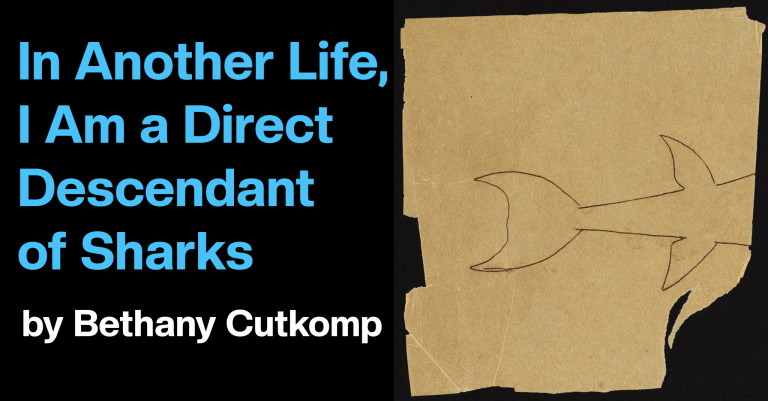
Fiction
IN ANOTHER LIFE, I AM A DIRECT DESCENDANT OF SHARKS by Bethany Cutkomp
And if I do not keep moving, I will pass away. They call this ram ventilation, a shark’s way of breathing. My invisible gills demand the same method of survival. Since hatching from your womb, I have been burdened to forward momentum, a squirming force to be reckoned with. Raised in a realm above sea-level, however, the current has always worked against my nature.Most mornings, you barely squeeze in the chance to slather sunscreen over my ampullae of Lorenzini—freckles, you insist I call them—before I'm out of the door and down the street, bike pedals whirling, thrusting through the stagnant humidity. I may not bear fins like my aquatic ancestors, but the sweat I shed tastes of the sea. Marine familiarity, a restless scene. Inherent muscle memory urges me to continue on, past the front of the school, past the park, and past the fast food joints. Past the gas stations, past the woods, and past the town border. On and on, beyond state lines, never stopping until my toe-shaped fins touch the fizzy surf.Logic is a habit you’ve instilled in me, however. I settle for circling the perimeter of the building until my muscles scream for mercy or until security guards scream after me.In the classroom, society expects me to conform to anthropocentric ideologies: sit still—a manner my species physically cannot obey. Doesn’t matter that I’ve just biked the scenic route to school. For a shark, it’s move or die. I’m a fish out of water, floundering at my graffitied desk after exhausting all bathroom privileges to wander the hallways.From what I’ve overheard you whispering to neighbors and folks at our church, my teachers exchange concerns about the pacing, the rocking, the bouncing, claiming my fidgety movements are a detriment to my development and too much of a distraction to my peers. They’ve got it all wrong. The girls sporting dolphin cackles in the corner are the ones to be wary of.“See that kid over there? Yeah, that one. The boy that can’t sit still,” I make out of their clique-exclusive echolocation. “Stay away from him. Guy’s got issues.”If it were socially acceptable to bite, I would.That is a common misconception about my kind, though. I may bear a sharp-toothed grimace, but I am not violent-natured unless provoked. Even then, sharks are more afraid of humans than humans are of sharks. Often you prompt me to suck it up, to conform to warm-blooded standards out of my comfort zone for the sake of making friends. You don’t get it. My ancestors have roamed this planet solo, hundreds of millions of years before any mammal, and they’ve managed well enough.Y’know, you yourself aren’t the best at showing affection. I get my skin takes on an abrasive texture, but a bit of compassion here and there won’t hurt. Just a few kind words to validate my existence.Deep in the night, I thrash under sweaty bed sheets. The only way you get me to fall asleep is by dangling me from the edge of the mattress, flipping me head-side-down and feet-side-up, evoking a trance of tonic immobility. Assuming I’ve surrendered to human dreams, you admit to my father that it may be time to seek professional help for my condition.What condition is that? Do you not see traces of shark in yourself? Through weary slits of nictitating membrane, I watch your shadow roam back and forth past my bedroom door.
October 30, 2025

Fiction
THE DEN by Andy Bodinger
I’d been in the Midwest a month. I had stepped off the Greyhound with clothing, toiletries, documents, and a cremation urn, which I kept my savings in. The locals considered my new town dead. At first, I disagreed. Or, I figured at least, if it was dead, its corpse was flowering. Everything I needed was within the grid of a few blocks. Connecticut was unwalkable, nothing more than tree-lined roadways connecting one muddy village to the next. Soon, however, I ended up bored out of my mind, never imagining that I could do everything right and be so listless. One afternoon, I was drowsing in a booth in a downtown coffee shop when the owner, Howitzer, slid into the seat across from me. His posture was stiff, and the little hair he had was combed over his liver-spotted scalp. He gave it to me straight: he kept notice of me, trying to discern, for weeks now, whether or not I was an ‘Amoeba.’ “How often do you shave, son?” he asked, the word ‘son’ underwhelming in his timid voice. I told him I did a dry shave every few days.“Do you own a suit, and tie?” “What, like a penguin?” I answered. “Do you have an income?” “Yes, sir.” I found three within days of arriving. I cooked lunch at a daycare, walked dogs in the park, and slung drinks at a bar named Rockett’s. I lived in a former and refurbished motel for cheap. He asked what I did for fun. I told him that, like my parents and grandparents, I liked podcasts, roast beef grinders, and the smell of burning pine, and us five even shared the same galloping chuckle.“I didn’t ask for all that,” he said. “Alone, now, I presume? They call me Howitzer. I think I have your number. Kindred spirits. That sort of thing. Write down your phone number and email address on this.” A napkin. “Okay. Next. Read this, and come back tomorrow for the key.” I asked him what kind of key, and he told me that once I read the contents of the manila envelope he handed me, I'd understand.I commuted the two miles back to my apartment on foot and read the packet. The next morning, I returned to the coffee shop in the early hours before it opened and ran into Howitzer lugging two Airpots of coffee between his tattooed arms. He said my name, and I took one of the Airpots. He reached into his pocket to pass me a key on a chain. I followed him down the block and around the corner from the defunct Xavier's Books, where he unlocked a side door that led to a flight of wooden stairs. At the top was a carpeted living area, flanked by a private bathroom and a sparse kitchenette. Howitzer told me they called this the ‘den.’ We set the airpots, one vanilla bean and one dark roast, on the counter. Howitzer opened the cabinet under the sink and set out Styrofoam cups and a bowl of minty herbal cigarettes. He asked me if I had read the rules in the envelope and then, if I liked it here. I gave him the gist of my life. I came from a simple and thrifty Connecticutian family who converted the first floor of their colonial home into a diner that overlooked a secluded road and an ocean of verdant trees. Our menu was average. The sunrise is what made us our living. I lived in a shed powered by a generator in the back, saving my 15% of the earnings in a cremation urn. The urn once housed the remains of a Rottweiler named Argo, whom my family picked up from a shelter the week after we were nearly burglarized. The Midwest was a paradise. “Don’t say that much ever again,” Howitzer said. “Actually, anything at all. For the first few days. Got it?” He told me to review the rules, but otherwise to drink as much coffee and to smoke as much as I wanted, and that the den was open to me at all hours of the day as long as I remembered to lock up. I spent a few hours that morning there, and the mornings the rest of the week, as well as a few evenings. It was always the same. Howitzer would set up the air-pots. Amoebas would filter in, drinking and/or smoking, sitting on the lint-rolled loveseat, or on one of the folding chairs, or leaning enigmatically on one of the console tables that lined the walls, each of which accommodated a succulent and an archipelago of coasters kept at cautious distances. The rules were clear: no chit-chat, here or elsewhere. The best we would get was a smile or a nod and that was enough. Included with the rules in the manila envelope was a black-and-white photo of Jessica, the founder. Her father owned Xavier's books and both returned to Sioux Falls to be with family when he fell ill. In the meantime, Howitzer served as her intermediary. In the photo, she was dressed in shorts, a tank top, and spotless shoes on a beginner climbing wall. Her hands gripped the lowest handholds. Her head was turned towards the camera, eyes widened with surprise. I got the impression this was the only photo in existence of her, and even in it, she seemed unremarkable, as if she was just a feature of the textured spectrum of the faux rockface, not even the main character of her life. I think this picture was included for this reason. None of this is about any of us. We’re trembling at the base of a wall, turning our heads upwards, only to see more wall. We were not to share names, bring outside cups or cigarettes, though packed lunches were okay. No inviting strangers or oversharing. Amoebas would come in the morning, lunchtime, evenings, and sometimes in between. I came up with names in my head for everyone. There was Roger. Leathery skin, sucked-in jowls, poked holes in slippery belt, who would sometimes throw up in the bathroom before leaving for the day. There was Sophia, perhaps an eagle-eyed energy lawyer, bangs parted in perfect symmetry, who I’d seen around driving a lime-green beetle and who brought in a matching lime lunch box. There was Marie. Early twenties. Her nose was pierced, with a silver chain linked to her ear. Though we all had keys, Howitzer would open in the morning and tidy up at night. The den was comforting, especially when it was full. Us staring forward, or off, at an angle, evading eye contact. A fragile peace. Each of us, an unknowable, disambiguated phantom. Sometimes, out of nowhere, someone, never me, would share an anecdote, really a snippet, and we’d perk our ears to listen.“There was this piglet on the side of a seven-lane highway," Roger once told us. "Some years ago. One of those micro pigs, I've heard them called. It wasn't bigger than…." He held his hands out, a stretch of foot dangling between." I left it on the front steps of a humane society. I hope if someone was peeking through the blinds and saw me, they didn't think that was my micro piglet I was running out on.”Every once in a while, Sophia would share anecdotes about nuclear energy, a weave of storytelling, and light proselytizing.“In Vermont,” she once began, popping an hour-long bubble of silence, “how did they offset their energy needs after shutting down their nuclear plant? Not with wind. Not with solar. Coal. Yup, coal.”“Uh-huh,” we replied. Marie shared occasional idiosyncrasies from her visits to apathetic doctors who refused to believe in her deliberate celibacy, and she’d recount rude comments made during an ultrasound—whose purpose was omitted from us—and who blew his nose so many times she kept count. “18,” she said. “Or close to it.”We inhaled and, each at our own pace, sighed.A story was a call.The responses were either sighs, if the story was negative, or an “uh-huh,” if positive.When we were not sure, we guessed. It was predictable. It was addictive. We lived to hear about a tree collapsing and crushing a hanging beehive or a beloved aunt going missing and being found by a neighbor in an antique phone booth. During all of this, meanwhile, we held Styrofoam cups and the fragrant cigarettes. This was our form of caressing. The idleness that plagues the palms of non-Amoebas was easily fulfilled for us in this way. Our lives were undeniably boring, lacking the harsh drama and welling climaxes of paired-off couples, the highs and lows of those sorts of lives, but we were beyond that, happy that our only ambitions were to hang onto these stories passing like a drizzle before evaporating. Most days, I’d leave a fiver in the wooden collection box in the corner of the kitchenette, leaving at the very last moment and tossing my cup into the garbage. I believed that donation was a sort of magic. The money was to help keep the den’s lights on, and to help Jessica pay for her father's treatments. It was well worth it to witness the Amoebas in our unknowable grandeur. But also, there is a karmic give and take the world over. Like, in Connecticut, when I had emptied the rottweiler’s ashes into the surrounding woods in the middle of a winter night, giving back to the planet, the following week the diner was filled to the brim morning after morning. I realized, too, the more I donated to the den, the more tips I got at work. Everything was a self-contained circuit. I’d give to the den. The den gave back to me. And I could only imagine what the other Amoebas thought of me. Perhaps they suspected I was a secret multimillionaire. Or, a scuba diver in Bora-Bora. A used car dealer. A live-in butler. An underworld celebrity who rubbed elbows with Yakuza bosses and CEOs of mosquito net NGOs. I slept soundly at night on my springy mattress, imagining things like this. One night I let myself into the den. By then, I’d been an Amoeba for a few months, and the two-mile-long commute, the many hours spent on my feet,and the sixty-hour work weeks were beginning to really/truly drain me. For the first time, I considered how strenuous a lifetime of exertion can be and how painful it would be to start over, should something happen to my urn. My apartment door was thin and its lock was flimsy. I brought my urn to the den one night to see if there was a secure place to tuck it away. When I flipped on the lights, I jumped. Roger was in his usual spot, looking out the window. I was caught off guard. I placed my urn on the table, next to a bunch of print-outs Sophia left behind. Howitzer must not have tidied up that night. On top was the first page of the Gospel of Philip, the line, No one can meet the king while naked, circled in red pen. Roger looked ragged and I wanted to ask him if he was okay. Whenever I’d see a fellow Amoeba in the park or drinking at the bar, I wouldn’t acknowledge them. To do so would be like rifling through their trash or snooping through their mail. Whenever such an interaction occurred, which was rare, someone would contact Jessica, who would send out a long email, and Howitzer would have the offender return their key, change the locks, and have members collect new keys. “I’ve been eating more,” he said. “But nobody tells you that food has caffeine in it, too. Now I can't sleep."How unfair the world is. Roger had the demeanor of a surfer who survived a shark attack, and if he were to undress, I could easily picture a scar coursing over his torso, like a comet. I witnessed inequality daily. At Rockett’s, some patrons drank alone and others with loud crowds. Some dogs I walked were leaders, like a whiny husky, or followers, like the bleary-eyed dachshund. At the daycare, I could tell which kids were leaping ahead in maturity based on their grilled cheese preferences: some ate crustless white bread with a slice of American. Others like the crust. Others wanted more than one flavor of cheese, others wanted a tomato, and one kid in particular, whose parents were fast-tracking him to fabulous success, wanted minced pickled jalapenos on rye. Only we Amoebas were equal. "I don't trust my deadbolt at home," I told him, my heart hammering in my chest. This was the first time I'd opened my mouth since joining. "A light breeze is all it takes to force it open." “Uh-huh,” Roger replied, heartfelt. I was euphoric. He went back to his window. I began my search for a place to hide my urn. I measured the gaps under the furniture and opened the toilet tank. Too risky. I trusted Amoebas but not potential interlopers. In the kitchenette, I opened the cupboard under the sink and sifted past the beach containers and stacks of toilet paper. On a hunch, I felt the plywood sides of the cupboard, pushed at the corners, feeling around for a handhold. One slid off easily. I pulled my head inside and felt a chill emanating from this extra space and reached blindly inside. I pulled out a few objects: an antique hardcover of Gone with the Wind, a folded-up walking stick, and a decanter crammed with shirt buttons. I put everything back inside. I collected my urn from the table and noticed that Roger was gone. I slid my urn behind the panel and shut it. I took Roger’s place by the window. After a few minutes, I heard two voices. A couple. They were loud but not argumentative, playfully bantering by saying things like oh yeah? and shut up! I kept to my post, waiting for them to pass. The next few months were cold and fruitful. I put money into the den's donation box, and on certain nights, I'd add to my urn, which never felt like it was getting full. (The rottweiler whose ashes it used to hold was massive.) I was in the den one afternoon, eating a grilled cheese. Sophia was poking at something in her lunchbox with chopsticks. She had left print-outs on the table again, this time from the Gospel of Thomas:
Jesus said, "If those who lead you say to you, 'See, the kingdom is in the sky,' then the birds of the sky will precede you. If they say to you, 'It is in the sea,' then the fish will precede you. Rather, the kingdom is inside of you, and it is outside of you.Marie had just recounted a childhood memory. She was camping with her folks, and their neighbors had just caught a trout. They carried it to their coal-fired grill and dropped it there, flailing, scales and all. Marie reached the part where her neighbors shut the trout in when an unfamiliar voice resounded from the stairway. Her voice rose as she climbed, which pierced our hearts. We stood up from leaning, uncrossed our legs, extinguished our cigarettes, and swirled our coffee without bringing it to our lips. “Hullo,” a woman said when she reached the top. Her head swiveled as she took stock of us. She wore a North Face jacket, sweatpants, and bright yellow rain boots. “Come along,” she said to a baby hammocking in the bend of her elbow. “Let’s pour ourselves a dark roast coffee, yes? Did that spill? Nope, we did good. Didn’t we do good? Okay, let’s go back and find a coaster.” Mercifully, the baby was quieter than she was. The woman placed her cup on a Frida Kahlo coaster and sniffed emphatically. She raised her child to her nose and said “excuse us.” She entered the bathroom and closed the door. We looked at one another, bewildered. Having a kid didn’t disqualify one from Amoebahood. But bringing a child along and wantonly acknowledging us? The abrasion. There was nothing mysterious about her in the slightest. Our postures sagged. Amoebas scratched their nose, shifting their weight from one foot to the other. Sophia straightened her skirt; I cleared my throat; Roger stood up. Marie tapped her fingers as we listened to the muffled sounds of the toddler’s diaper change. We all watched on as the interloper exited the bathroom, muttering, "late, late," and clattered down the wooden stairway, waving goodbye with her free arm, her coffee left to cool on Frida Kahlo. In the span of four minutes, she raised havoc and vanished. “What the fuck was that accent?” Sophia asked, wasting no time.“Australian,” I posited. My throat was dry.“Definitely, a Kiwi,” Marie said. “I studied abroad in Wellington.”“And who gave this ‘Kiwi’ a key?” Sophia demanded. Shrugs, shuffled feet. This was the first time in the den's history that anyone spoke louder than in a conversational tone. Sophia texted Howitzer, who called Jessica, who sent out a mass email.Who invited her, this ‘Kiwi,’ and did she break any rules? No one would be banned, she promised, both she and Howitzer were post-hoc conscientious objectors, who loathed collecting keys. Jessica just wanted to know who told his woman about the den, and if someone went over Howitzer’s head to make a key. “Again, no one will be banned for coming forward," she wrote at the bottom of the email, "We just want assurance the den is secure." We never felt secure again. We were quieter—what if an outsider were to overhear?—and we dallied less. We lingered now in a clearing fog, as if our cigarette smoke somehow materialized in frailer plumes. I could tell it troubled Roger more than anyone. When I would see him he would be slumped in his chair, almost lying straight on his back. If this Kiwi could finagle into our den so easily, who else could break through, ask questions? A meeting was demanded, the first of its kind. I’d seen the den busy, but never cramped. There was no space for leaning. Howitzer stood between the kitchenette and the living area, and we strained to hear him, in his low, droning voice. "Let's relax," Howitzer said. "She hasn't come back, has she? We haven't seen any newcomers either? Let’s allow normalcy.” Sophia darted her arm into the air. “We should change the locks again, just to be sure.”“Can we afford to do that again?” Marie asked. “She’s right,” Roger said. “If she has a key. She can make more and leave them on park benches." “That’s ridiculous," Marie retorted, and an argument broke out. No one could have predicted how dense our emotions could surge or how much agitation one Kiwi could carve out from us. I crossed my arms in the corner.Several Amoebas walked out, fanning across the empty streets. We were talking to one another directly, and battle lines were drawn. The hardliners were selfish, the calm ones were naïve, and who knows how many interlopers would take advantage of the divisions?Sophia quoted Gnostic passages to Marie. Roger punched a wall, and didn’t leave a dent. Howitzer polished the sink until the commotion died down. When Sophia tired of preaching, she called the naïve Amoebas corrupt, and Marie trailed her, and their argument carried out to Sophia’s beetle, who drove away at fifty miles per hour.A third of the Amoebas handed in their keys on the spot. Howitzer slithered through the dying crowd to the street to meekly tell Marie to hand in her key, too.
***
When I arrived at the den the next morning, I was alone and the succulents were missing. We didn’t discover the origins of the Kiwi. No one admitted to giving her a key. We didn't have the satisfaction of booting her, nor the Amoeba who did, and without those things there was no foundation upon which to repair the den.Nevertheless, I tried. It's all I had in that decaying town. I bought a lunch box and took every breakfast, lunch, and dinner in the den I could afford, gulping coffee and chain-smoking. I figured out how to mass email and reminded everyone that with closed mouths and open minds, normalcy was ours for the taking. "Don't think about the Kiwi! Don't think about interlopers!" Yet often I ate alone. But when I wasn’t, I led by example, sharing as many anecdotes as possible."We had a pet rottweiler growing up," I told Roger and several others. "He was big and mean, and he would jump on me and no one else because I was so tall. He’d lie in my bed before I moved into the shed and growl if I pushed him. I hated him. I hated him so much. Then one night, my mom or dad or grandma or grandpa—not me, is what I'm saying, this wasn't on purpose, left the front door ajar. The next morning, we found him on the side of the road; something powerful, like a truck, must've pummeled him. Strangely, he seemed at peace."I knew I should have stopped talking there. That was the story. Beginning, middle, end. I had already gotten some “uh-huhs” and a brisk sigh. But I carried on. "I blamed myself. But it wasn't my fault, like I said. But you know what I was thinking that night? I was thinking: I wish he would drop dead. And then it happened. I know it's a cliché. Listened, I willed my dog to die—on accident! Imagine what we would do for the Amoebas, on purpose!”Roger looked at me with disgust. “Really, man?” He took a long drag of his scented cigarette. He marched to the bathroom and vomited with the door open. He came back and stared at me as he wiped his mouth with an open palm. “I’m out.” Sophia sent out a mass email later that day. “I don’t know where to begin. This is all new to me,” began her three-thousand-word address. “I’ve never felt actually, totally, fully, completely, alone like I do now.” Winter came. Fewer families asked for their dogs to be walked. The daycare merged with a bigger one on the other side of town, too far to walk to. I only had Rockett’s. Money was tight. The sky labored overcast and each day shaded monotonously. I poured myself a sour beer at the end of my shift and sat in a corner. My phone vibrated with an unfamiliar number. I ignored it.The caller left a voicemail. I put the phone to my ear and listened.“We haven’t met before. It’s Jessica,” a quiet voice said. I sat up in my seat. Howitzer must have given her my number when I joined. “Thank you for sticking it out so long. You are one of the few who did.” Her voice was faint and reserved, as if she had just gotten out of bed, and didn’t carry the flavor of leadership that I was trying to emulate. "I hate that I have to tell you this. I wish I could have done more, but my dad… Things are getting worse. I'm sorry to have to tell you that I'm selling the bookstore. The den is a part of the property. I can’t justify keeping it. Thank you. Stay safe. I hope you find a new light.”I was out of the bar, full speed across the lamplit blocks toward the den, hoping that the locks weren’t changed yet and I could reach my urn before it was too late.My key fit. I rushed up the steps and entered the kitchenette and opened the cabinet and pulled away the side panels. I reached my hand in and felt nothing but cool, empty air. I stuck my head in. Nothing. I heard the toilet flush. I pulled my head out and felt a presence behind me. “Roger said you were poking around in here, but I didn’t realize…” Howitzer said. “That was my savings,” I told him. Howitzer’s face was pale. “All of it?” I asked.“Actually,” he started to say, then peered over his shoulder as if he were surrounded. “I promise. I had no idea. I should have questioned it, but I couldn’t believe our luck.”“What about my urn?”“Pawned it.”I stood up. “We helped Jessica pay off some outstanding bills. Not to mention the good luck with the buyer who actually wanted to reopen the bookstore. Our prayers were paying off.”Before I could say anything, Howitzer averted his eyes again, looking at his shoes like a child. I knew how he felt because I was him. I realized Howitzer had mistakenly invited the Kiwi. He misjudged and undid everything. He lost more than I did. I, however, was young and hungry; I still had a chance. My urn wasn't gone. It was donated, and good luck was around the corner, tenfold.I stood up and held out my hand toward Howitzer. He stared at my open palm.“I’m your barista now.”“Okay,” he said, and shook my hand. That was that.We walked down the wooden steps together. "Your key." he said, and I handed it to him, thinking, This will be the last thing I lose. "Rock bottom is only a minor setback," I told him. I smiled widely. I couldn't wait for the future. I wouldn’t be able to sleep.Howitzer squinted his eyes and told me to be in at six tomorrow. I told him I would. I wasn't even going to go back home. I'd stay at Rocket's till close and then wander around downtown for a few hours, appreciating the foggy sky, admiring our dilapidated architecture, and glaring at passing couples.As Howitzer walked to his car, I looked up at the den again. We left the lights on. You could almost make out a star or two in the night sky. I would rebuild the den because I knew it was in me all along. I was the den, looking up at the den, and I knew that no matter what happened, I would be rich, I would one day be surrounded by Amoebas again, and once that time came, any and every worry would be plucked from my mind, one, by one, by one. October 29, 2025
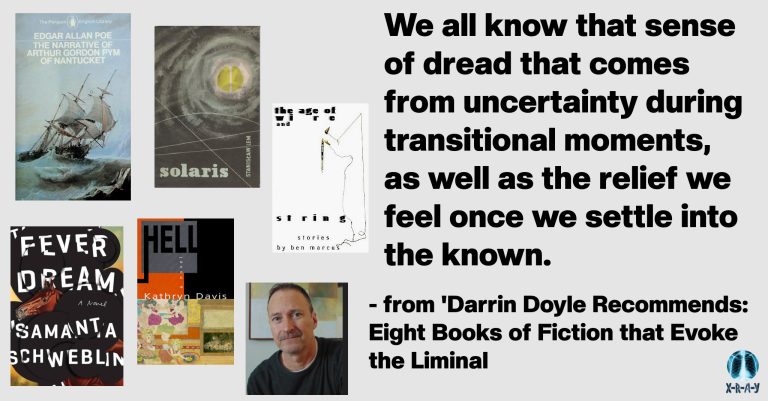
Fiction
DARRIN DOYLE RECOMMENDS: EIGHT BOOKS OF FICTION THAT EVOKE THE LIMINAL
Opening your eyes at night, unsure of where you are, half-dreaming, half-awake…staring into the darkness of a living room, thinking that the shadow near the door might be a man…or a coat rack… the tremble along your spine as you hear the voice of a deceased loved one on your voicemail…the uncanny sight of a mannequin that may or may not be a living person. We all know that sense of dread that comes from uncertainty during transitional moments, as well as the relief we feel once we settle into the known.Below are a list of fiction books that are highly effective at making the reader feel as if they are occupying a space in between: between real and fantastical, normal and paranormal, waking and dream, self and other, sanity and madness, life and death. Some are surreal, some evoke the uncanny; some use absurdity and humor, some play with expectations of form and structure; and some distort language itself to evoke a liminal state. Fever Dream by Samanta Schweblin (Riverhead Books, 2017)“She’s not his mother. He’s not her child.” This statement on the jacket flap forecasts the oddness of this novella, which tells the story of a dying woman, Amanda, who is speaking to David, the child of a woman named Carla. David has previously been saved from death after ingesting a poisonous liquid, but the process of saving him has changed him into an uncanny version of himself, as if he’s now lacking a soul or spirit. Amanda is trying to figure out what happened to herself as well as to help her daughter Nina. Much of the story is told in dialogue, with no quotation marks, which is just one way Schweblin creates a fluidity of identity and a dreamlike state. Schweblin also plays with narrative structure, creating an enigmatic atmosphere as we try to figure out what truly happened. The result is an eerie existential tale that lives up to its title. In the House by Lyn Kilpatrick (The University of Alabama Press, 2010)This is a wildly unique story collection, each piece revolving around domestic spaces. Kilpatrick employs formal invention and a poetic, figurative lens to create a sense of liminality between psychological and physical, between exterior spaces and interior spaces. Kilpatrick uses lists, instructions, diary entries, directions, character sketches, and more. In one series of flash pieces, each titled “Diorama,” the reader explores ordinary household situations through the uncanny use of toys and figurines meant to represent reality. The result is a creepy, sad, thoughtful meditation on the thin line between danger and safety in our domestic lives. The Narrative of Arthur Gordon Pym of Nantucket by Edgar Allan Poe (Harper, 1838)One of the founding fathers of liminal fiction in American letters, Edgar Allan Poe’s longest story is also one of his strangest. I’m oversimplifying quite a bit here, but this novel features (among other things): a man stowing away on a ship and nearly starving in the cramped space; there’s a violent mutiny; there’s a shipwreck; there’s a boat full of rotting corpses; there’s cannibalism. Eventually the story takes us to a bizarro Antarctic landscape where the water is thick and laced with veins. Poe’s familiar themes of claustrophobia give way to fear of the other, fear of the irrational, and fear of mental stability giving way to madness. The Age of Wire and String by Ben Marcus (Alfred A. Knopf, 1995)One of the most unique and challenging fiction books I’ve ever read, The Age of Wire and String does nothing short of redefine the English language, providing new, wildly strange definitions to common words. It’s less a story collection than a glossary of terms, a catalogue of a parallel universe. Marcus eschews standard story elements like character and plot in favor of a swirling, befuddling, funny, and surprisingly enlightening journey through a defamiliarized landscape that resembles our world but is wholly new. My biggest takeaway is how strongly our concepts of “truth” and “reality” are determined by the words we use, the names we call things – and when these definitions are destabilized, we’re thrust into liminal chaos. Hell by Kathryn Davis (Ecco Press, 1998)This is one of my all-time favorite novels, and it’s been hugely influential on me as a writer. Hell employs three distinct spaces/narratives: 1950s Philadelphia, 1700s France (featuring Napoleon's chef), and a dollhouse in the 1950s Philadelphia home. We’ve all seen novels with multiple timelines and settings, but the brilliance of Davis’s novel is seeing these spaces/times gradually blend and converge, intruding on each other quietly and persistently until reality becomes a blurred distortion. By breaking down the normal barriers that delineate time and space, our comfort and sanity are put to the test. The novel is terrifying, bewildering, and one-of-a-kind. The Week by Joanna Ruocco (The Elephants, 2017)This collection explores the liminal space of storytelling, the way stories themselves can place us in a transitional state by raising questions about intention, purpose, and narrative stance. How does one categorize these pieces? Ranging from a few sentences to about four pages in length, they eschew traditional fiction components at every turn. Many read like stream-of-conscious rants (Instructions? Meditations?) that may or may not connect to their titles. Take “Well,” for example, which begins: “The human body is not a good place to store things, not if you want them to keep. If you want things to spoil, then, fine, put them in the human body. Put a head of lettuce in your body, it will wilt in the heat, the cellulose will turn to slime.” The Rumphulus by Joseph Peterson (University of Iowa Press, 2020)This delightful read from one of Chicago’s best writers tells the story of a forest inhabited by men. These are men who have been banished from society, forced to live in the wild. They’ve each been condemned, though none of them seem to know what their transgressions were. Franz Kafka is one of the most well-known writers of the liminal (I could have included any of his works on this list), and The Rumphulus is definitely a Kafka relative. This novel takes (and gives) great pleasure through resistance: to rules of logic, of human behavior, of conflict and character development, and even rules of grammar. Solaris by Stanislaw Lem (Wydawnictwo Ministerstwa Obrony Narodowej, 1961)This classic science fiction novel has been adapted into film a couple of times with varying degrees of success, but I personally don’t think either adaptation captures the spooky, unsettled feeling of the novel, which bends reality so thoroughly and consistently that a reader feels trapped in a prison of dread. The story finds a crew of scientists living on a planet named Solaris, and each of them start to experience visions and manifestations – actual embodiments, it seems, of repressed memories. Are these ghosts? Are they real? Or are they simply phantoms created by the psyche? The novel never gives easy answers to these questions. Instead, we’re left to squirm with uncertainty just like the characters. A revised tenth anniversary edition of Darrin Doyle’s The Dark Will End the Dark features a new introduction by American Mythology author Giano Cromley. Released October 2025 by Tortoise Books.
October 28, 2025

by Mike Topp
$25 | Perfect bound | 72 pages
Paperback | Die-cut matte cover | 7×7″
Mike Topp’s poems defy categorization. That’s why they are beloved by seamstresses, pathologists, blackmailers and art collectors.
–Sparrow

